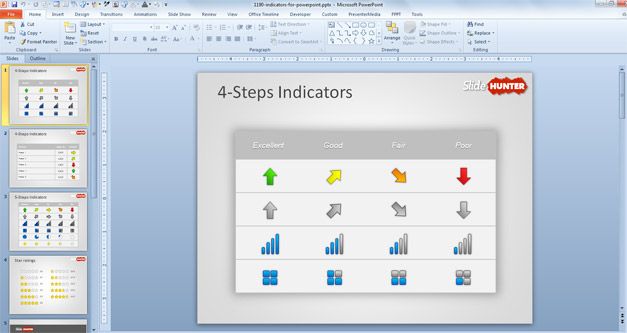

SlideGarage’s KPI template for PowerPoint, Slides and Keynote include the following templates KPIs provides a focus for strategic and operational improvement, create an analytical basis for decision making and help focus attention on what matters most. Key Performance Indicators (KPIs) are the critical (key) indicators of progress toward an intended result. KPI or Key Performance Indicators is a performance metrics which is commonly used within many businesses. Please contact the screening helpdesk if you would like further information on screening KPIs.KPI or Key Performance Indicators is a performance metrics which is commonly used within many businesses. We’d love to share them here for everyone to benefit from. We hope to also highlight specific KPIs in future blogs so please do let us know through the helpdesk if you have any suggestions or good examples of how you’ve put KPI data to use locally to improve your screening services.

We'll be publishing another blog shortly to talk about the last set of KPI data which we published recently – for quarter 3 (September to December) 2014. Our aim is to provide good quality, timely data to support this process. Improvements come from effective partnerships and good leadership across organisations. It’s important to keep in mind that even though data is an essential part of how screening services are monitored it can’t by itself lead to improvements in those services. We welcome input and suggestions from all stakeholders. KPI data is regularly reviewed by PHE data experts, with the aim being to produce meaningful reports to support reduction in performance variation and improvement in quality of screening services. All the information about the collection and submission process can be found on our national data reporting page.

KPI return templates are made available in the month before the submission period starts. We’re very grateful to everyone who’s involved in collecting, validating and submitting KPI data to PHE – we know it’s challenging at times!

They contribute to the quality assurance of screening programmes but are not, in themselves, sufficient to quality assure or performance manage screening services. The screening KPIs give a high level overview of the quality of screening programmes at key points on the screening pathway. A selection of coverage screening KPIs are also published in Public health Outcome Framework online reporting tool.Īnnual data will also be made available by collating the quarterly provider returns. We publish KPI reports openly on GOV.UK so everyone can access them. KPIs are part of the overall screening standards and are collected quarterly from screening providers in England. In total we have 17 KPIs at the moment, though they get reviewed regularly and any which aren’t useful are retired to make space for others which will have more benefit. The KPIs for screening have had a major impact within my unit, in terms of raising the profile of screening and ensuring that quality assurance is taken seriously
#Key performance indicator templates free free#
The screening co-ordinator at the Royal Free Hospital added that: The introduction of screening KPIs has driven improvements in our service consequently we now have a more robust screening service for women For instance, the Head of Midwifery at Kingston Hospital said that: We started systematically collecting KPI data in 2010/11 and in our annual Screening in England report from the following year (2011/12) we were already able to give examples of their impact. This enables services to check if they’re meeting this important standard and do something about it if they’re not. So we’ve developed a KPI that measures how many babies are seen within 4 weeks of a referral being made. As an example, it’s really important for babies who refer from newborn hearing screening to be seen quickly by their local audiology service as otherwise they’ll miss out on the benefits of screening. But what exactly are they, how do they work and what value do they add for people delivering screening services?īasically, they’re a consistent way of measuring the performance of the NHS screening programmes according to specific public health priorities. Key performance indicators (KPIs) are used by many organisations including Public Health England to see if they’re meeting their objectives.


 0 kommentar(er)
0 kommentar(er)
